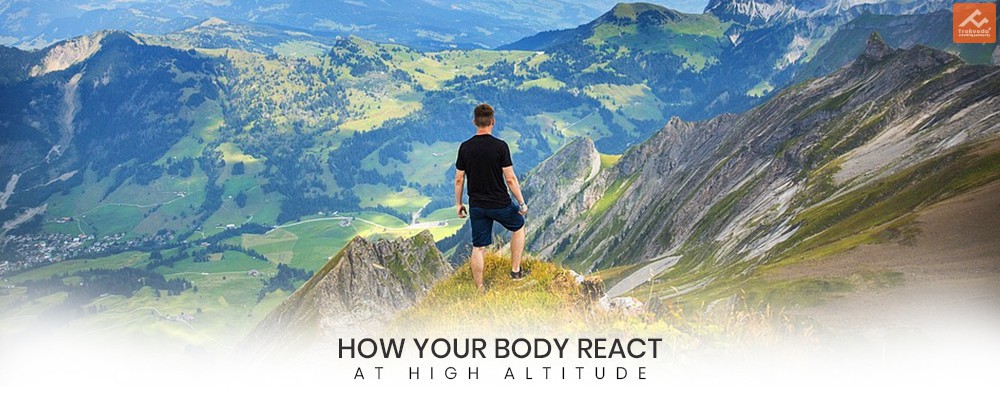How your Body React at High Altitude
- Date : 2020-06-01
- Author : Devesh Bhatt

I have observed many trekkers, whether beginners or experienced, sometimes really not make a wise choice while pursuing a trek for them, especially beginners when they plan a trek out of a list they pick a random trek without knowing how difficult it could be for them.
So today I am going to tell you what exactly happens to your body when you climb to high altitude and what can it cause you so that from now onwards you will keep that in mind and make a start with a specific limit of height.
Let me explain to you
At lower level or sea level, there is always a certain amount of pressure in air, and at this pressure, air particles stay pressed together, and this scenario creates oxygen in the air and keeps it concentrated.
Therefore breathing in sea level gives you enough amount of oxygen. This is vice versa process, as you climb to a higher level the decreasing pressure in the air scatters the air particles and make a vast space between them cause of which the oxygen level decreases, the concentration of oxygen become lesser.
That is the reason you cannot climb the high altitude just randomly or in a day, to get used to of the air pressure scenario in the mountains, you take a day or two for rest to which we call an acclimatization day.
Where you make yourself used to of the environment, just for a better understanding of air pressure level here are some explanations.
The air pressure at sea level is 101.3 kPa, as you climb to around 16,000 Ft. around, the pressure drops to 54.8 kPa, Higher up, at around 29,028 Ft. It further drops to 30.8 kPa this air pressure is the death zone named.
It takes a couple of days to acclimatize at the high altitude; therefore, all the higher altitude treks are of 5 to 10 days or more but not less and which includes acclimatization day also.
How your body react to it?
When you move to the higher altitude, the oxygen level gets lesser, and your body starts to react instantly and compensate by trying to take in more oxygen that causes faster breathing.
Secondly, as the body recognizes that the lesser oxygen is in the air, so it compensates it by increasing the quantity of oxygenated blood, that means your heart starts pumping faster, and your pulse increases.
In your blood, red bed cells are the vehicles that carry oxygen. When your heart pumps faster, there are more red blood cells scurrying about, but having too many red blood cells is not good for you. As it makes your blood thick. Now, since both, your lungs and heart, are working harder than usual, your body tries getting rid of any excess baggage that it might be housing. It does this by getting rid of excess fluids — what it perceives as useless body weight, this makes you urinate more often.
Conclusion
It is essential to maintain the reaction of the body in the high altitude and to take precautions against it.
Your email address will not be published. Required fields are marked *